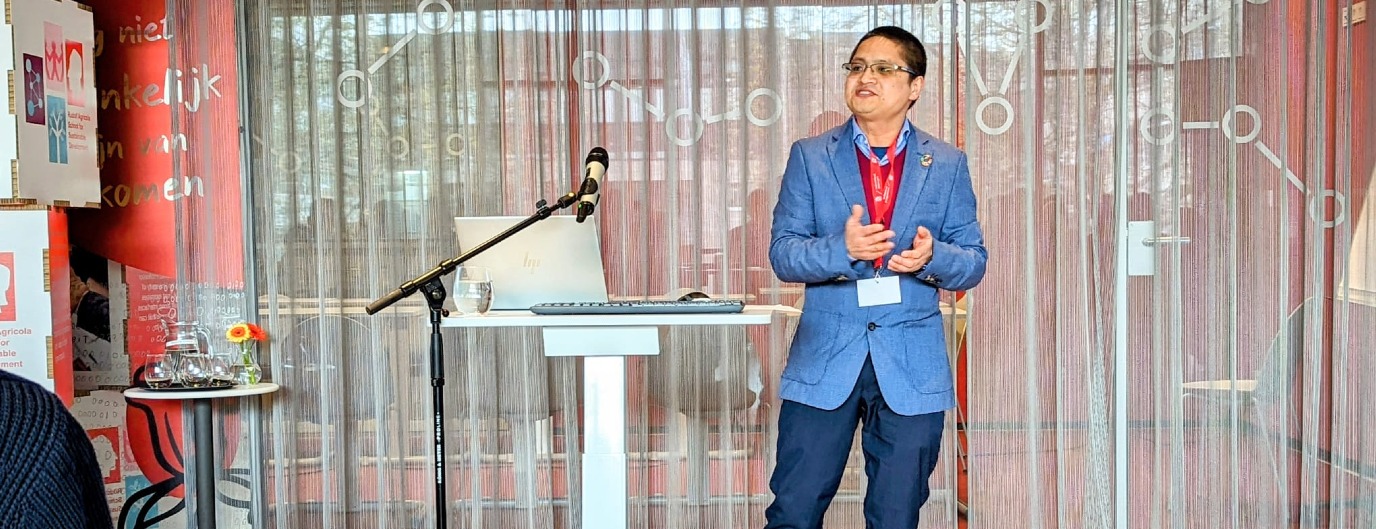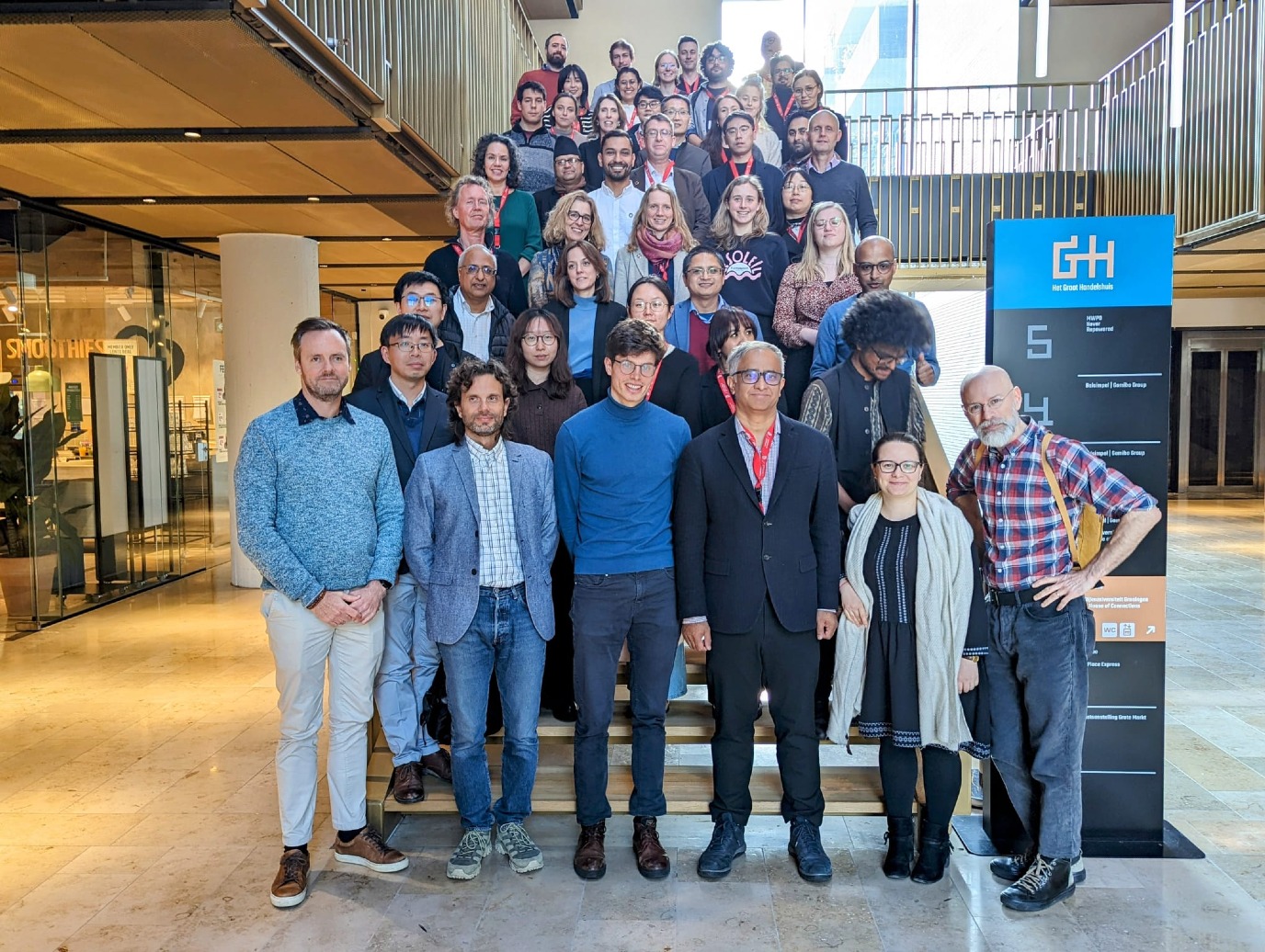How to accelerate Sustainable Development Goals? Researchers offer three foci at the science-policy interface

In the Summit of the Future , held on 22 and 23 September 2024, world leaders agreed to take bold, ambitious, accelerated, just, and transformative actions to achieve the Sustainable Development Goals (SDG). An international group of more than 50 experts offers three foci at the science-policy interface to implement this agreement in Nature Communications .
The article is based on a workshop held at the Rudolf Agricola School for Sustainable Development, University of Groningen, in the Netherlands, with participants from various countries representing researchers and policymakers:
'Due to silo approaches, the integrated and indivisible principles of the SDGs are facing implementation challenges,' argues Dr. Prajal Pradhan, assistant professor at the University of Groningen and the lead author of this study. Now, SDG implementation strategies must be changed. To break the silo approaches, we offer three foci at the science-policy interface to support implement the integrated and indivisible nature of SDGs.
Our three foci offer policymakers means to implement the integrated and indivisible nature of the SDGs. By understanding the complex interactions between different SDGs, we can develop coherent strategies that balance economic, social, and environmental goals. This approach allows us to leverage synergies while addressing trade-offs, ensuring accelerated SDG progress by 2030 and beyond.'
Prof. Klaus Hubacek, co-author and Professor at the University of Groningen, emphasized the importance of a systemic, long-term approach: 'Sustainable development requires a deep understanding of the interconnectedness between human activities and environmental systems. By incorporating systems thinking and evidence-based solutions, we can design policies that not only address immediate challenges but also create long-lasting benefits for both people and the planet.'
Three science-policy interface foci are a way forward
First, the experts call for actionable strategies to navigate the complex interactions between the SDGs and develop coherent, systemic solutions that align economic, social, and environmental objectives. Understanding SDG interactions is crucial to designing strategies that promote multiple SDGs simultaneously, ensuring that efforts in one area do not conflict with progress in another. Policymakers can create more comprehensive and effective plans to meet SDG targets by identifying synergies between goals and minimizing potential conflicts.
Second, utilizing scientific models can facilitate the implementation of the SDGs. Many models related to the SDGs are available, which help policymakers analyze the long-term impact of policies. These models assist in designing future-focused strategies and identify additional measures needed to achieve the SDGs. The current scenario modeling provides knowledge of the actions required to accelerate SDG progress. The experts call for further development of SDG models and their utilization in SDG policymaking.
Third, various tools can translate scientific findings from SDG interactions and models into practical solutions for policymakers. These tools make monitoring and optimizing SDG progress easier, supporting integrated decision-making. However, limited tools are developed to guide integrated SDG planning and decision-making. Also, SDG tools should include stakeholder-specific actions to make SDG progress. Thus, the experts call for co-developing tools with stakeholders to support SDG implementation.
Addressing trade-offs and enhancing collaboration required
One of the key challenges highlighted in the article is addressing trade-offs, such as balancing economic growth with environmental sustainability. The experts provide policymakers with guidelines for navigating these trade-offs, helping them create sustainable and equitable strategies. The article also stresses the need for collaboration and inclusivity. Successful implementation of the SDGs requires input from diverse stakeholders, including scientists, policymakers, and local communities. The experts call for more inclusive decision-making processes incorporating these perspectives to create better, more sustainable outcomes.
Looking Beyond 2030
While the 2030 deadline for the SDGs is fast approaching, the experts also offer a long-term vision, providing policymakers with insights that go beyond 2030. By planning for the challenges and opportunities that will arise after 2030, policymakers can ensure that sustainable development efforts continue in the decades to come. As a contribution to implementing agreements at the Summit of the Future, the three foci equip policymakers with new insights to accelerate SDG progress. By embracing these foci, governments worldwide can ensure a safer, more sustainable, and equitable future. The experts call for urgent, systemic action as the window to meet the 2030 goals narrows.

Further Reading:
The article in Nature Communications:
Prajal Pradhan, Nina Weitz, Vassilis Daioglou, Gabriel Abrahão, Cameron Allen, Geanderson Ambrosio, Frederike Arp, Furqan Asif, Therese Bennich, Tim Benton, Frank Biermann, Min Cao, Henrik Carlsen, Fang Chen, Min Chen, Michiel Daams, Jonathan Dawes, Shobhakar Dhakal, Elisabeth Gilmore, Luis González, Klaus Hubacek, Yuanchao Hu, Wander Jager, Samir KC, Norman Kearney, Utkarsh Khot, Teun Kluck, Shridhar Kulkarni, Julia Leininger, Chaohui Li, Jing Li, Hermann Lotze-Campen, Gonzalo Parrado-Hernando, Matteo Pedercini, Ram Phuyal, Christina Prell,Arpan Rijal, Vanessa Schweizer, Frans Sijtsma, Bjoern Soergel, Nathalie Spittler, Detlef van Vuuren, Anne Warchold, Birka Wicke, Oscar Widerberg, Rienne Wilts, Christopher Wingens, Eartha Weber, Chaoyang Wu, Qiang Xing, Jin Yan, Zifeng Yuan, Xin Zhou, and Caroline Zimm.
For further information please contact:
Dr. Prajal Pradhan, Assistant Professor at the University of Groningen and Lead Author. Academic lead of our research group Landscape values and socio-ecological systems: p.pradhan@rug.nl
Further publicity on this article:
Scientists highlight three ways to accelerate the Sustainable Development Goals. (Stockholm Environment Institute)
Researchers offer three science-policy focus areas to accelerate the SDGs (University Utrecht)
Neue Wege zur Erreichung der SDGs: Drei Schwerpunkte für Wissenschaft und Politik (Austria Presse Agentur Science)
How can policymakers and scientists help speed up progress to achieve the SDGs? (International Institute For Applied Systems Analysis)
Policymakers, Scientists Urged to Accelerate SDG Progress (Mirage News)
More news
-
15 September 2025
Successful visit to the UG by Rector of Institut Teknologi Bandung

